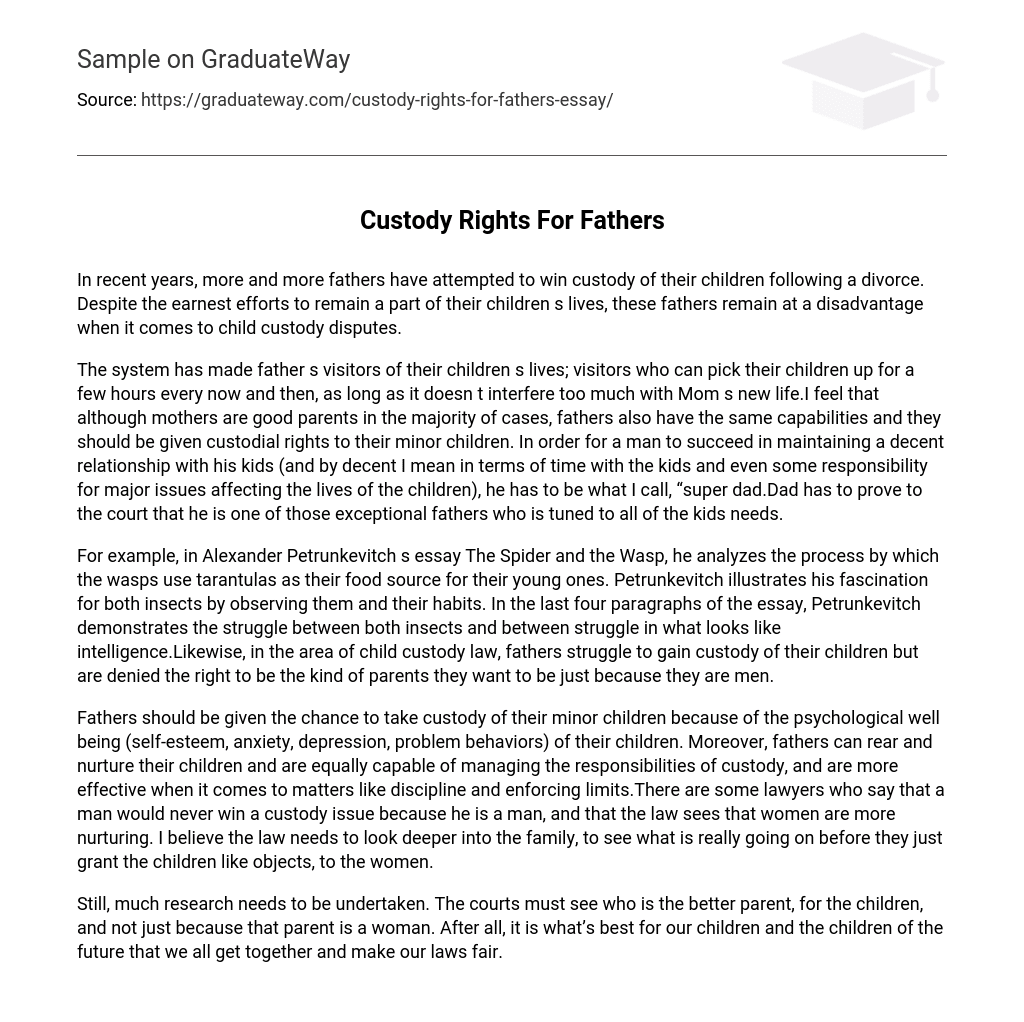Despite making sincere efforts to remain involved in their children’s lives, fathers are progressively seeking custody of their children during child custody disputes post-divorce. Nevertheless, they still face disadvantages in these conflicts.
The system restricts fathers to being occasional visitors in their children’s lives, allowing them limited time with their children as long as it does not disrupt the mother’s new life. Despite mothers typically being competent parents, I firmly believe that fathers possess equal abilities and should be given custody rights for their underage children. To develop a strong bond with their kids and take responsibility for important matters in their lives, fathers must show the court that they are exceptionally attentive to their children’s needs – becoming what I call a “super dad.”
In his essay The Spider and the Wasp, Alexander Petrunkevitch examines how wasps utilize tarantulas as nourishment for their offspring. Throughout the piece, Petrunkevitch displays his fascination with both insects through close observation of their behaviors. In the final four paragraphs, he emphasizes the struggle between these creatures and suggests the presence of intelligence.
Likewise, men who pursue custody of their children encounter numerous obstacles in child custody law. Regrettably, these fathers frequently face rejection in their quest to assume desired parental roles solely due to their gender.
The psychological well-being of children is greatly impacted by advocating for fathers to have the opportunity to take custody of their minor children. This advocacy considers factors such as self-esteem, anxiety, depression, and problem behaviors. It is crucial to acknowledge that fathers are fully capable of effectively raising and nurturing their children. They possess equal skills in managing custody responsibilities and exhibit greater effectiveness in areas like discipline and enforcing limits. Although certain lawyers argue that men have little chance of winning a custody issue due to gender stereotypes, which depict women as more nurturing, I believe it is necessary for the law to thoroughly assess each family’s dynamics before granting custody solely based on these stereotypes. Treating children as possessions should be avoided.
It is imperative that we conduct additional research to identify the most suitable parent for court proceedings, regardless of their gender. Collaboratively, we must create equitable legislation to safeguard the welfare of our children and future generations.





